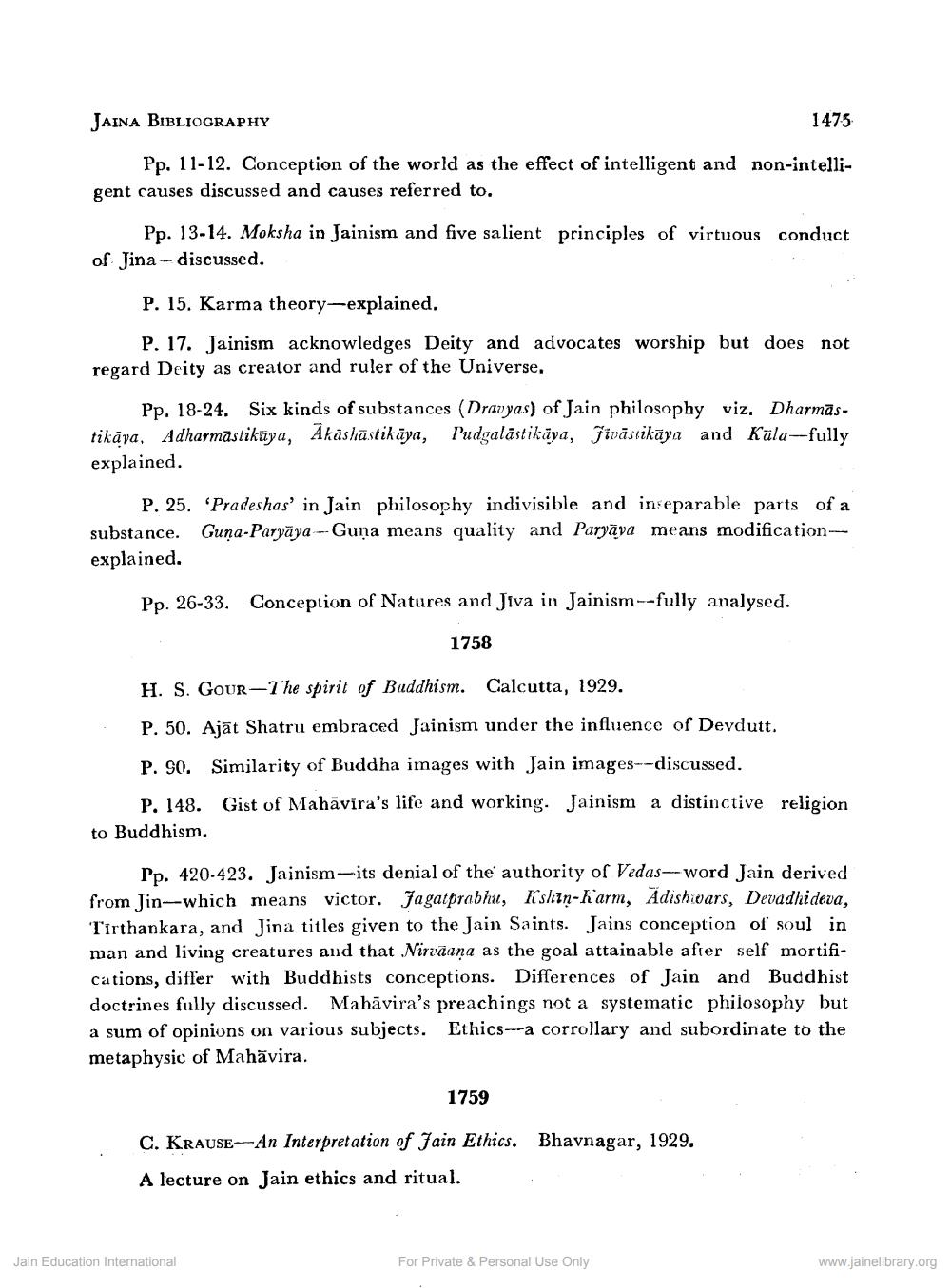________________
JAINA BIBLIOGRAPHY
Pp. 11-12. Conception of the world as the effect of intelligent and non-intelligent causes discussed and causes referred to.
Pp. 13-14. Moksha in Jainism and five salient principles of virtuous conduct of Jina discussed.
P. 15. Karma theory-explained.
P. 17. Jainism acknowledges Deity and advocates worship but does not regard Deity as creator and ruler of the Universe,
Pp. 18-24. Six kinds of substances (Dravyas) of Jain philosophy viz, Dharmāstikaya. Adharmastikaya, Akashästikäya, Pudgalāstikāya, Jivästikaya and Kala-fully explained.
P. 25. 'Pradeshas' in Jain philosophy indivisible and inseparable parts of a substance. Guna-Paryaya-Guna means quality and Paryava means modificationexplained.
Pp. 26-33. Conception of Natures and Jiva in Jainism--fully analysed.
1758
H. S. GOUR-The spirit of Buddhism. Calcutta, 1929.
P. 50. Ajat Shatru embraced Jainism under the influence of Devdutt.
P. 90. Similarity of Buddha images with Jain images--discussed.
1475
Gist of Mahavira's life and working. Jainism a distinctive religion
to Buddhism.
Pp. 420-423. Jainism-its denial of the authority of Vedas-word Jain derived from Jin-which means victor. Jagatprabhu, Kalan-Karm, Adish wars, Devadhideva, Tirthankara, and Jina titles given to the Jain Saints. Jains conception of soul in man and living creatures and that Nirvana as the goal attainable after self mortifications, differ with Buddhists conceptions. Differences of Jain and Buddhist doctrines fully discussed. Mahavira's preachings not a systematic philosophy but a sum of opinions on various subjects. Ethics-a corrollary and subordinate to the metaphysic of Mahavira.
Jain Education International
1759
C. KRAUSE An Interpretation of Jain Ethics. Bhavnagar, 1929.
A lecture on Jain ethics and ritual.
For Private & Personal Use Only
www.jainelibrary.org




